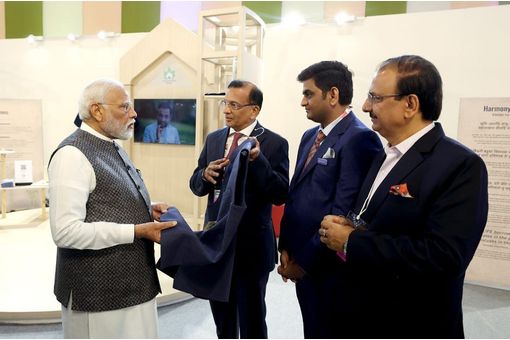Interviews
Exporters to face non-tariff barriers in EU countries - FICCI
01 Aug '09
6 min read
Notwithstanding the European Union's (EU) long-term attractiveness to Indian business as a market with immense promise, ground-level feedback received by FICCI reveals that corporates are up against protectionism by way of agriculture subsidies and Non Tariff Barriers (NTBs) on services exports.
A FICCI Survey on 'India-EU Trade Relations' on the post-recession experience of Indian exporters doing business with the EU reveals that exporters are facing the adverse impact of the huge amount of subsidies enjoyed by EU farmers through free seeds and fertilizers and a freight subsidy to producers. In addition, exporters face cumbersome quality testing which increases the cost and time dimension of Indian companies. In particular, many mid-sized India pharma companies have been severely hit due to the recent seizure of shipments at transit ports located in the EU.
The respondents to the FICCI Survey felt that the main impediment in the expansion of services to the EU were visa and consular issues, non-clarity of taxation and cross border transaction laws as applicable to Indian service providers.
Specifically in the IT sector, companies face difficulties in obtaining work permits for their professionals. Besides, issue of work permits is time consuming. Delays are rarely appreciated by clients in the EU who sign tight and time-bound contracts and expect timely delivery.
Difficulties are still being experienced by exporters in obtaining visas/work permits for spouses of IT professionals travelling to the EU. Moreover, work permits are still being issued for a particular city only in some of the EU countries such as Germany. Currently, the UK government issues visas only for 6 months, while a period of two years would be reasonable considering the repeated time and resource commitment in applying for visas. (Non-recognition of Indian qualifications in many EU countries is a further hindrance to the growth of trade in services.
Another major issue being faced by IT companies with business in more than one EU constituent is that of movement of personnel between branches within Europe. Many a time, flexibility is required for efficient execution of projects. The current rules require the procurement of a separate work permit each time, involving elaborate bureaucratic procedures.
The FICCI Survey reveals that exporters doing business with more than one EU country are not able to reap economies of scale by producing in bulk for both markets. This is because the EU countries follow different standards domestically. A further complication is that products complying with UK standards and supplied from India to other EU countries like Germany are not accepted whereas the same product complying with same UK standards and supplied through UK to Germany are accepted and vice versa.
The Survey covered four broad aspects: Perception of the EU as a trade partner; Issues of concern with the EU;Reaction to the proposed India-EU FTA; and the; and Future plans of business expansion with the EU.
A FICCI Survey on 'India-EU Trade Relations' on the post-recession experience of Indian exporters doing business with the EU reveals that exporters are facing the adverse impact of the huge amount of subsidies enjoyed by EU farmers through free seeds and fertilizers and a freight subsidy to producers. In addition, exporters face cumbersome quality testing which increases the cost and time dimension of Indian companies. In particular, many mid-sized India pharma companies have been severely hit due to the recent seizure of shipments at transit ports located in the EU.
The respondents to the FICCI Survey felt that the main impediment in the expansion of services to the EU were visa and consular issues, non-clarity of taxation and cross border transaction laws as applicable to Indian service providers.
Specifically in the IT sector, companies face difficulties in obtaining work permits for their professionals. Besides, issue of work permits is time consuming. Delays are rarely appreciated by clients in the EU who sign tight and time-bound contracts and expect timely delivery.
Difficulties are still being experienced by exporters in obtaining visas/work permits for spouses of IT professionals travelling to the EU. Moreover, work permits are still being issued for a particular city only in some of the EU countries such as Germany. Currently, the UK government issues visas only for 6 months, while a period of two years would be reasonable considering the repeated time and resource commitment in applying for visas. (Non-recognition of Indian qualifications in many EU countries is a further hindrance to the growth of trade in services.
Another major issue being faced by IT companies with business in more than one EU constituent is that of movement of personnel between branches within Europe. Many a time, flexibility is required for efficient execution of projects. The current rules require the procurement of a separate work permit each time, involving elaborate bureaucratic procedures.
The FICCI Survey reveals that exporters doing business with more than one EU country are not able to reap economies of scale by producing in bulk for both markets. This is because the EU countries follow different standards domestically. A further complication is that products complying with UK standards and supplied from India to other EU countries like Germany are not accepted whereas the same product complying with same UK standards and supplied through UK to Germany are accepted and vice versa.
The Survey covered four broad aspects: Perception of the EU as a trade partner; Issues of concern with the EU;Reaction to the proposed India-EU FTA; and the; and Future plans of business expansion with the EU.
Popular News
Leave your Comments
Editor’s Pick
































-Ltd..jpg?tr=w-120,h-60,c-at_max,cm-pad_resize,bg-ffffff)





.jpg?tr=w-120,h-60,c-at_max,cm-pad_resize,bg-ffffff)
.jpg?tr=w-120,h-60,c-at_max,cm-pad_resize,bg-ffffff)






